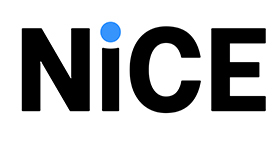Adam Aftergut of NICE discusses the changing expectations of new-generation advisors regarding contact centre processes and technologies.
When NASA engineers were designing the space shuttle’s solid rocket boosters — the iconic cylinders on the sides of the main fuel tank — they faced an unexpected design problem. This was because the boosters were built at a factory in Utah and shipped by train across the country to Florida, so their maximum width was limited by the dimensions of the tunnels the train would travel through along its route.
The width of those tunnels, of course, is defined by the size of trains, which are built to the U.S. standard railroad gauge of 4 feet, 8.5 inches. And that very specific number can be traced back to wagon wheel spacing, which had to be wide enough to accommodate a pair of draft horses.
Rather than approaching the design of the solid rocket boosters with a clean slate, NASA engineers were constrained by shipping limitations based on long-outdated technology — the horse-drawn wagon.
Is your contact centre doing the same thing?
Outdated Technologies Don’t Meet Modern Expectations
Many processes and procedures in contact centres were put into place decades ago, and they were driven in large part by the technology available at that time.
Technology, however, has since transformed, and younger generations who grew up with digital technology are entering the workforce with vastly different expectations — expectations that aren’t being met by the current outdated processes.
Millennial and Gen Z workers tend to value transparency from their management. They prefer authentic, unscripted interactions. And they want flexibility when it comes to work–life balance.
This disconnect between expectations and reality can cause significant frustration, which is reflected in increasing employee attrition rates.
When contact centre processes aren’t able to deliver the transparency, authenticity and flexibility agents are looking for, is it any wonder when they start looking for another job?
How to Meet Changing Generational Expectations in the Contact Centre
It will take some major feats of engineering to widen the U.S. rail system’s tunnels enough to change the design of NASA’s solid rocket boosters. Fortunately, updating your call centre’s technology is much simpler.
Nearly three quarters of all contact centre workers are now Millennials, and with the average annual turnover rate for agents in U.S. contact centres at 29 percent, figuring out how to meet the expectations of this population is critical to a contact centre’s bottom line.
Implementing modern workforce management software solutions can help you meet — and exceed — the expectations of Millennial and Gen Z workers.
By making the scheduling process transparent, you can increase the levels of workplace trust. You can also provide self-scheduling options to allow workers to trade shifts and request time off — all intelligently monitored by pre-set rules to avoid loading even work more onto management’s plates.
And, of course, all this can be done through cloud-based solutions that are optimised for mobile, meaning that your employees can interact with their schedules anytime, anywhere.
Isn’t it time you considered updating your contact centre’s processes to reflect the changing expectations of your workers?
For more information about NiCE-ltd - visit the NiCE-ltd Website
Call Centre Helper is not responsible for the content of these guest blog posts. The opinions expressed in this article are those of the author, and do not necessarily reflect those of Call Centre Helper.
Author: NiCE-ltd
Published On: 12th Apr 2019 - Last modified: 6th Jun 2023
Read more about - Guest Blogs, NiCE






 NiCE (NASDAQ: NICE) is transforming the world with AI that puts people first. Our purpose-built AI-powered platforms automate engagements into proactive, safe, intelligent actions, empowering individuals and organizations to innovate and act, from interaction to resolution. Trusted by organizations throughout 150+ countries worldwide, NiCE’s platforms are widely adopted across industries connecting people, systems, and workflows to work smarter at scale, elevating performance across the organization, delivering proven measurable outcomes.
NiCE (NASDAQ: NICE) is transforming the world with AI that puts people first. Our purpose-built AI-powered platforms automate engagements into proactive, safe, intelligent actions, empowering individuals and organizations to innovate and act, from interaction to resolution. Trusted by organizations throughout 150+ countries worldwide, NiCE’s platforms are widely adopted across industries connecting people, systems, and workflows to work smarter at scale, elevating performance across the organization, delivering proven measurable outcomes. 









